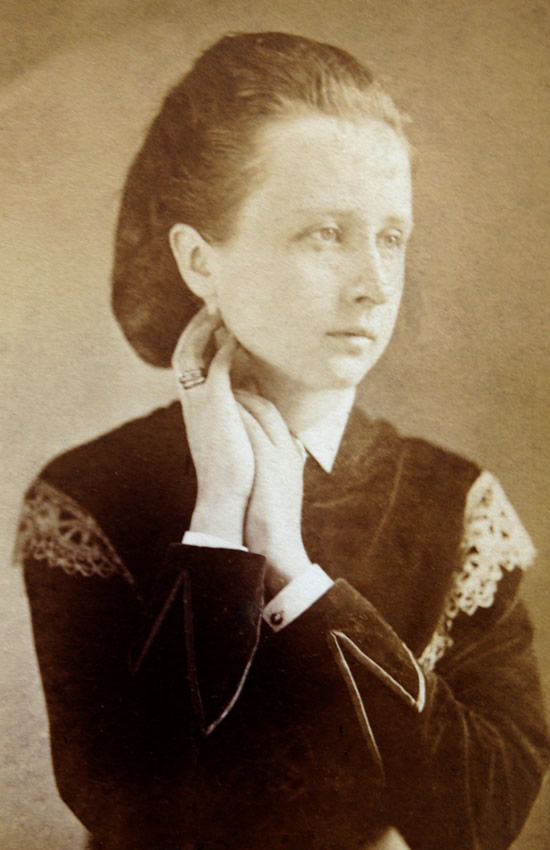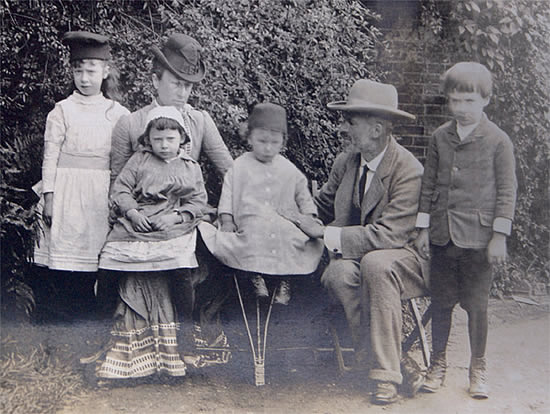Pakenham History : Joseph Alfred Hardcastle MP And Nether Hall
 "Joseph Alfred Hardcastle MP (1815 - 1899) And Nether Hall "
"Joseph Alfred Hardcastle MP (1815 - 1899) And Nether Hall "Diary entries and letters written during Joseph Alfred Hardcastle's tenure
of Nether Hall (1865 - 1873) and its sale.
Compiled and edited by Martin Sheppard,
great great grandson of Joseph Alfred Hardcastle MP
with kind permission to publish on the Pakenham -Village web site.
| Introduction |
|---|
The Templehouse Archive contains an extended correspondence dealing with the financial affairs, business dealings and family relations of Joseph Alfred Hardcastle MP (1815-1899).(1) After marrying a brewery heiress, Frances Lambirth in 1840, Hardcastle lived lavishly over the next twenty-five years. He consistently overspent his income on a political career and social pleasures, drawing large sums from the brewery of which he was the tenant. Formally, he was only acting as a trustee on behalf of his children, to whom their great-grandfather, Henry Lambirth, had entailed most of his fortune. Other sizeable sums which Hardcastle inherited or borrowed vanished.
(01) Templehouse Archive, Ballymote, County Mayo, P11.
In June 1865 Frances Hardcastle died, leaving her husband a widower but with the consolation of £40,000 insured on Frances's life. In pursuit of the enhanced social status that an estate would give him, and encouraged by his only son Henry, in the same year Joseph Alfred Hardcastle bought a large country house near Bury St Edmunds. To buy Nether Hall, he took out a mortgage for £24,600 for most of the purchase price of £38,000. The small estate of which the house was the centre produced an income only sufficient to pay the mortgage premiums, but not for the house's upkeep, let alone its enhancement.
Joseph Alfred Hardcastle nevertheless considered himself a wealthy man, assuring the Sir John Herschel, the astronomer and polymath (at the time of the marriage of his only son, Henry Hardcastle, to Maria Herschel in 1865) that he was likely to leave Henry £80,000 or more. He also volunteered to pay £500 a year into Henry and Maria's marriage settlement, as well as a bond for £10,000 payable into it on his own death.
The ownership and management of the brewery came under scrutiny in late 1868. Joseph Alfred Hardcastle's second daughter, Winifred, inherited a fifth share in the brewery on coming of age on 18 November. She had to decide whether to sell or to keep her share. After much soul-searching, recorded in her diary, she decided to sell.(02) With a fortune of £20,000 as an enticement, complementing her undoubted intelligence but plain looks, she flirted energetically at the Bury Ball on 8 October 1868 with Edward O'Malley, a young lawyer with East Anglian connections (who lived at 7 Lowndes Street in Knightsbridge, very close to Henry Hardcastle's house at 4 Chesham Street). After reaching an understanding, the couple were married on 17 June 1869.
(02) Her diary for these years is in the National Library of Ireland, 21694/1.
In 1868 Joseph Alfred Hardcastle himself decided to remarry but, despite his appearance of affluence, and the assurances on his income and property he gave to his prospective bride, Mary Scarlett Campbell, he had by this point effectively nothing to live on. He therefore threw himself, without prior notice, on the mercy of his son Henry, asking the latter to provide him with an income in return for handing over the management of the brewery to a partnership of Henry and Thomas Usborne, the husband of Henry's eldest sister Alice. To avoid the scandal of a broken engagement, and in the hope of drawing a substantial income from the brewery, Henry agreed.

Alice Hardcastle
Besides the two main parties, Joseph Alfred and Mary Hardcastle, and Henry and Maria Hardcastle, other family members and advisers were drawn into the issue. For three years, 1870-72, Henry and Maria, with their growing family, made lengthy summer and autumn visits to Nether Hall, punctuated by difficult and sometimes heated exchanges over their respective rights and on practical arrangements. In the autumn of 1872, however, a furious row seems to have taken place there. This helped determine Joseph Alfred Hardcastle to face the inevitable. He sold Nether Hall to the brewer Edward Greene in 1873.
Henry Hardcastle was embittered by his father's behaviour, and by the obligation that the agreement of April 1869 imposed on him to provide his father with an income of £500 a year, as well its waiver of his father’s obligation to pay £500 a year into Henry's marriage settlement. He was, however, forced to accept that he had no legal right to go to Nether Hall when and for as long as he wished. Then his hopes of inheriting the house disappeared when his father sold it. Although Joseph Alfred Hardcastle had assured Sir John Herschel that he intended to leave his entire estate to Henry, he left in fact everything to his second wife in a will written in 1877.
In 1915, long after Joseph Alfred Hardcastle's death in 1899, Henry Hardcastle wrote out a summary of Joseph Alfred Hardcastle's financial dealings. This summary, which is here prefaced by other family comments on Joseph Alfred Hardcastle's character, makes the first part of the material below. It is followed by extracts from Winifred Hardcastle's diary for 1868 and 1869; and by the agreements of 1869 on the brewery and on Joseph Alfred Hardcastle's second marriage. The bulk of the book consists of correspondence on family matters between 1870 and 1873. An outsider's glimpse of life at Nether Hall is caught in a letter of September 1871 written by a visitor, the Reverend Sidney Smith, the husband of Mary Scarlett Hardcastle's best friend.(03)
(03) Sidney L. Smith to Frances Mary Smith, 13 November 1871, Smith family letters at 102 Gloucester Avenue, London NW1 8HX. See below, no. 42
The letters as a whole give a far fuller account of these family and financial issues than Henry Hardcastle's summary by itself. While it is difficult not to have some sympathy with Henry and his wife, he comes over as both querulous and indecisive. He was a reluctant brewer, whose dream of owning a country estate was snatched away from him. He did not have the business acumen and drive of his brother-in-law, Thomas Usborne, who became the manager of the Writtle brewery, as well as a partner in the business, and ended up owning all of it. Thomas Usborne then used this as a stepping stone to building up a fortune of £500,000 in brewing and banking.Winifred O'Malley’s rapid departure into marriage after her twenty-first birthday removed her from the need to deal with her father’s profligacy and from having to derive a profit from men making themselves tipsy. Her feelings about her family, and the decision she was required to make on coming into her inheritance, are recorded at length in her diary. These entries, which include both a very detailed description of her room at Writtle and her will, are a poignant record of the dilemmas facing young women at this time on becoming responsible for their own money in a man's world.

Left to right : Margery, Winifred, Eva, Owen, Edward and Meyler O'Malley





